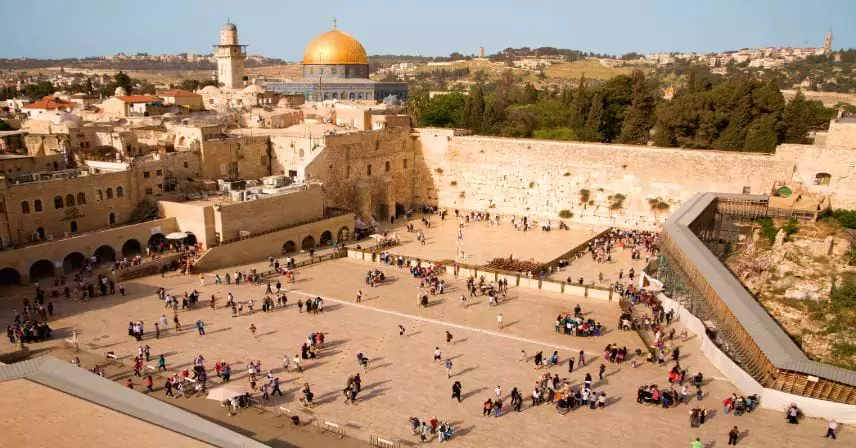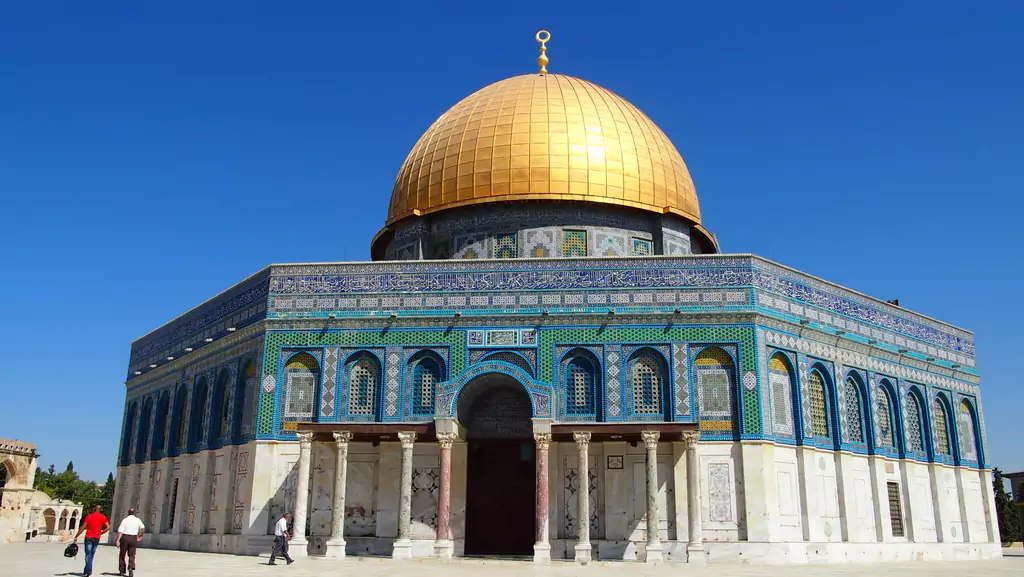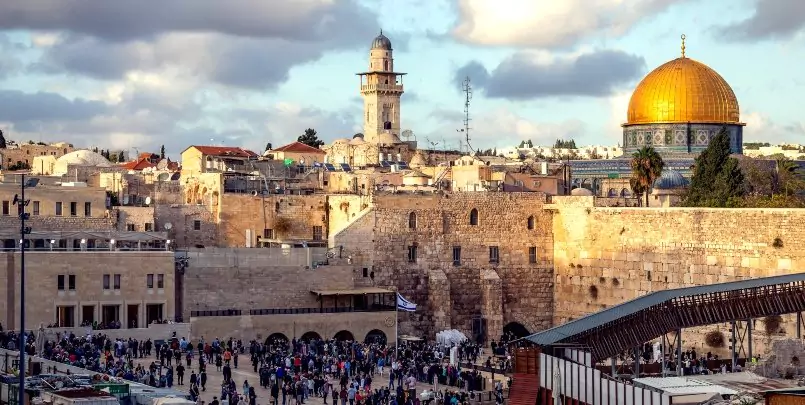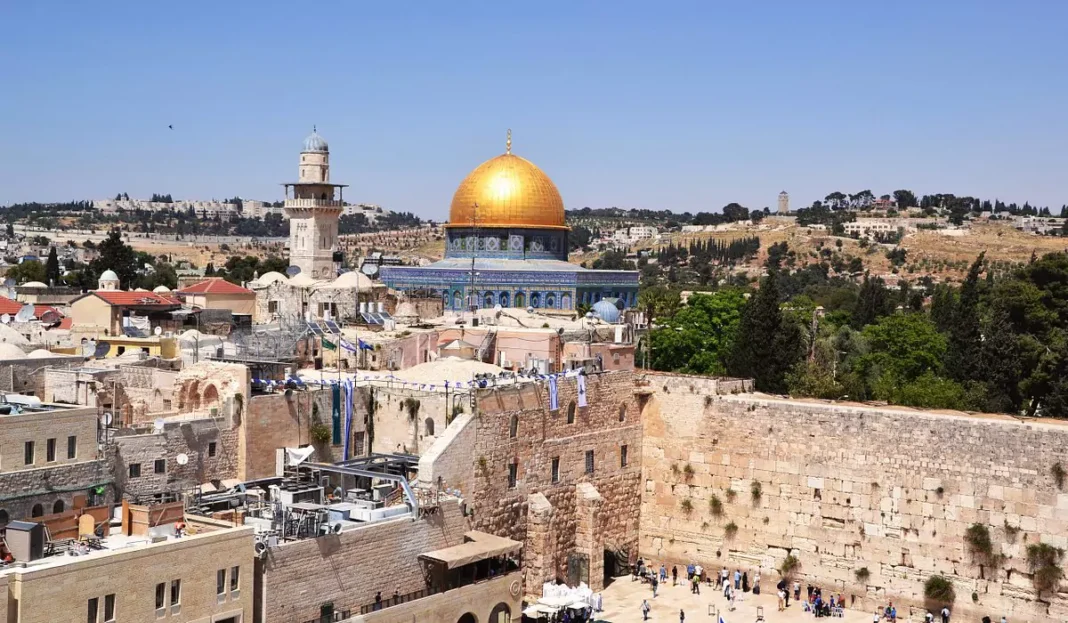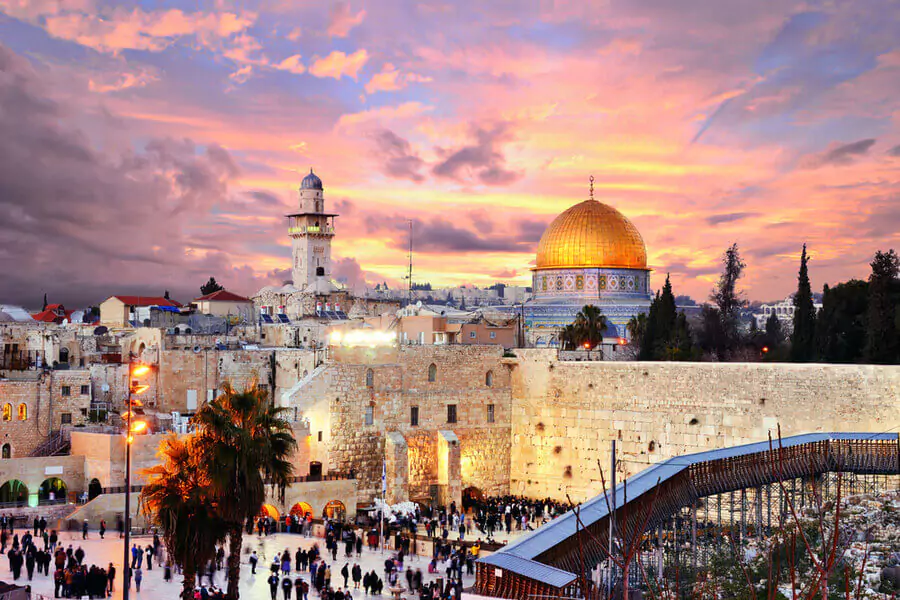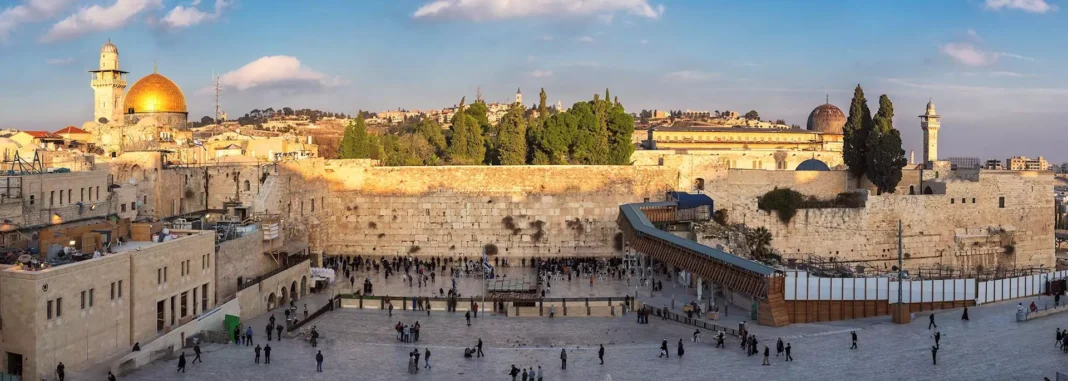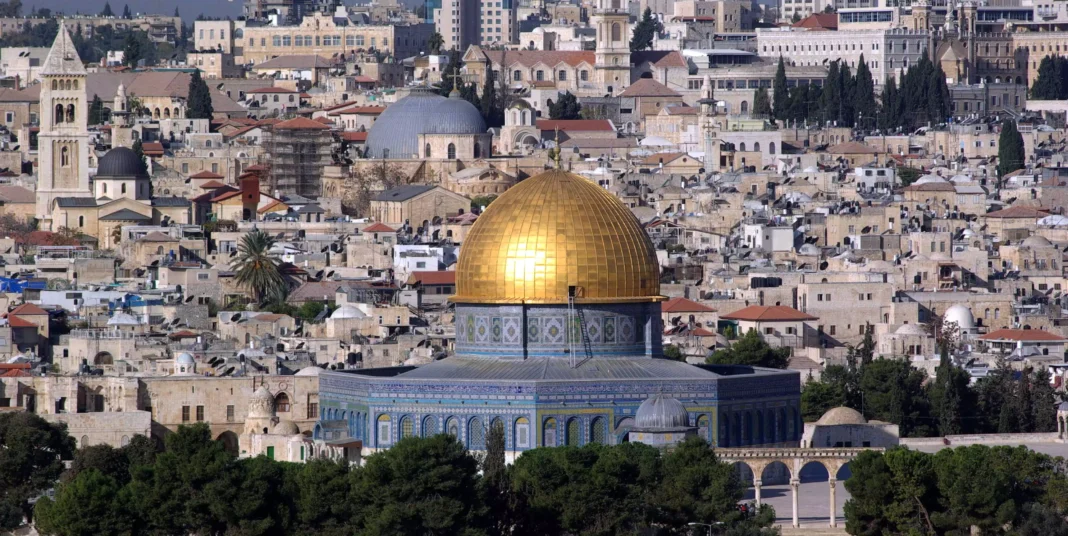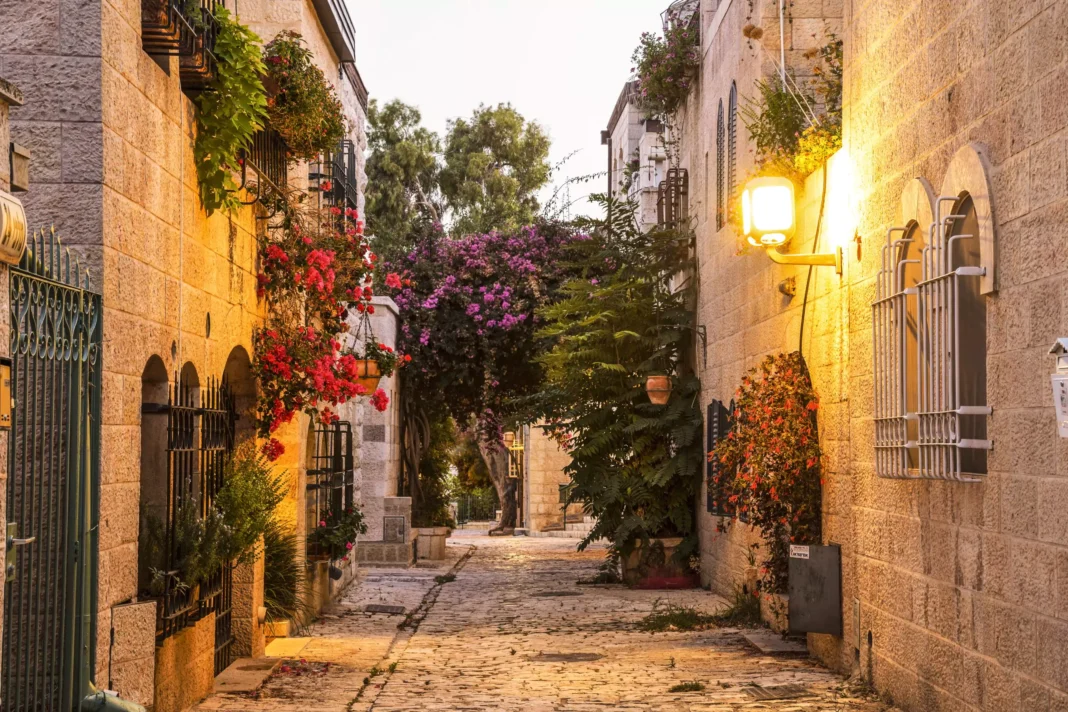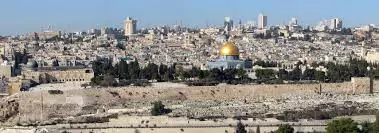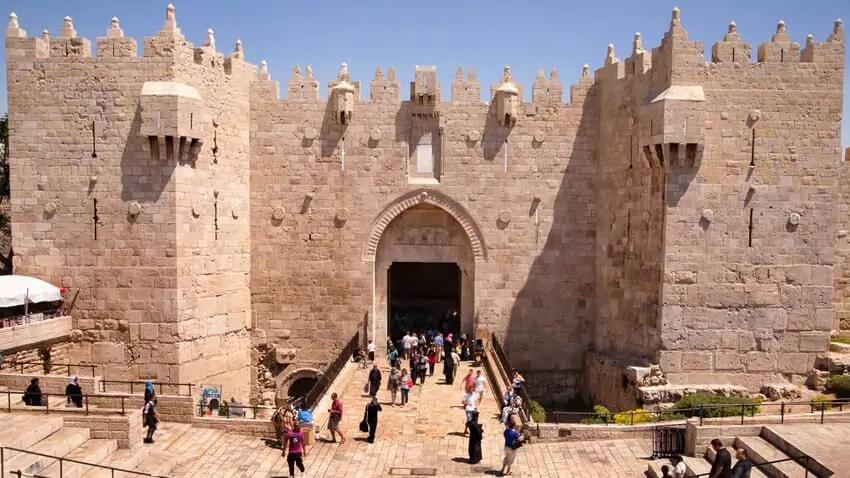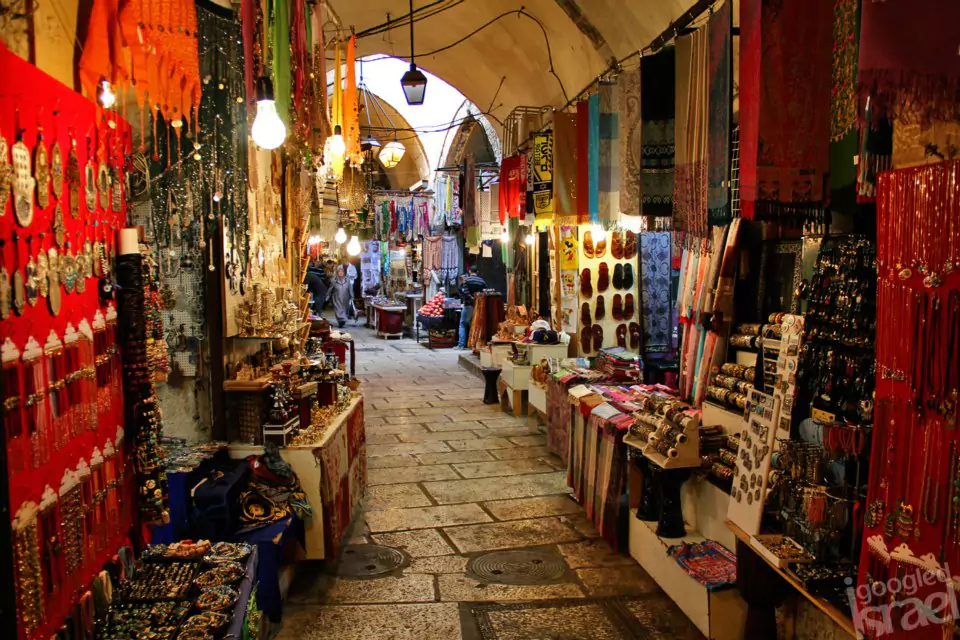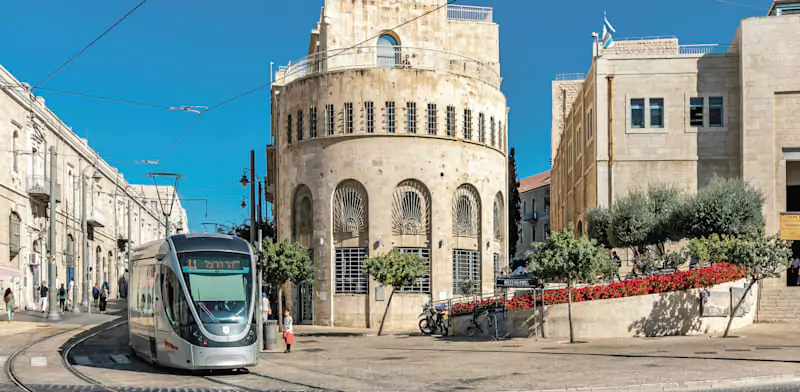Jerusalem, a city steeped in history and spirituality, stands as a beacon of faith for billions around the world. Sacred to Judaism, Christianity, and Islam, it draws pilgrims and travelers seeking to connect with its ancient past and vibrant present. This comprehensive guide will help you navigate the city’s labyrinthine streets, explore its iconic landmarks, and uncover the layers of history that make Jerusalem a truly unique destination.
Unveiling the Layers of History
Jerusalem’s history spans over 3,000 years, leaving behind a rich tapestry of civilizations and cultures. From its beginnings as a Canaanite city to its role as a capital for kingdoms and empires, Jerusalem has witnessed countless pivotal moments in human history.
The Old City: A Journey Through Time
The heart of Jerusalem lies within its ancient walls, a UNESCO World Heritage site known as the Old City. Divided into four quarters – Jewish, Christian, Muslim, and Armenian – the Old City is a microcosm of the city’s diverse cultural and religious heritage.
- Jewish Quarter: Home to the Western Wall, the holiest site in Judaism, and the bustling Cardo, an ancient Roman marketplace.
- Western Wall: Western Wall Plaza, Jerusalem. Open 24/7. Free admission.
- Cardo: Jewish Quarter, Old City, Jerusalem. Shops generally open 9am-7pm, Sunday-Thursday; 9am-2pm Friday.
- Christian Quarter: Walk the Via Dolorosa, the path Jesus is believed to have taken to his crucifixion, and visit the Church of the Holy Sepulchre, built on the site of his burial.
- Via Dolorosa: Starts at Lions’ Gate, Old City, Jerusalem. Accessible 24/7.
- Church of the Holy Sepulchre: Christian Quarter, Old City, Jerusalem. Generally open 8am-5pm daily, but hours can vary.
- Muslim Quarter: Explore the vibrant souks, filled with spices, textiles, and local crafts, and marvel at the Dome of the Rock, an iconic Islamic shrine.
- Dome of the Rock: Temple Mount, Old City, Jerusalem. Non-Muslims can only visit during limited hours and access is often restricted. Check current regulations before planning your visit.
- Armenian Quarter: Discover the Armenian Patriarchate and the intricate Armenian ceramics in this historic quarter.
- Armenian Patriarchate: Armenian Quarter, Old City, Jerusalem. Visiting hours vary; check their website for current information.
Tip: Dress modestly when visiting religious sites, covering shoulders and knees.
Beyond the Walls: Expanding Your Exploration
While the Old City holds many of Jerusalem’s most famous sites, venturing beyond its walls reveals a city that seamlessly blends ancient history with modern life.
- Mount of Olives: Enjoy panoramic views of the Old City from this historic hilltop, also home to several important religious sites. Accessible by bus or taxi.
- Yad Vashem: The World Holocaust Remembrance Center, a powerful and moving museum dedicated to the victims of the Holocaust. Har Hazikaron, Jerusalem. Open 9am-5pm, Sunday-Thursday; 9am-2pm Friday. Closed Saturdays and Jewish holidays.
- Israel Museum: Explore a vast collection of archaeological artifacts, Jewish art, and historical exhibits, including the Dead Sea Scrolls. Givat Ram, Jerusalem. Open 10am-5pm, Sunday, Tuesday, Wednesday; 10am-9pm Thursday; 10am-2pm Friday and Saturday. Closed Mondays.
- Mahane Yehuda Market: Immerse yourself in the sights, sounds, and smells of this bustling outdoor market, offering fresh produce, spices, and local delicacies. Located between Jaffa Road and Agrippas Street. Open daily except Shabbat.
Tip: Purchase a Jerusalem City Pass for discounted entry to many attractions and unlimited public transportation.
Experiencing the City’s Diverse Cultures
Jerusalem is a melting pot of cultures, where people of different faiths and backgrounds coexist. This diversity is reflected in the city’s cuisine, art, and traditions.
- Culinary Delights: Savor the flavors of Jerusalem with dishes like hummus, falafel, and shakshuka. Explore the Machane Yehuda Market for fresh produce and local treats.
- Artistic Expressions: Discover the city’s vibrant art scene with visits to galleries and museums showcasing both traditional and contemporary works.
- Religious Harmony: Witness the coexistence of different faiths at holy sites and during religious festivals.
Tip: Learn a few basic Hebrew phrases to enhance your interactions with locals.
Practical Tips for Navigating Jerusalem
- Transportation: The light rail system and buses provide efficient transportation throughout the city. Taxis are also readily available.
- Currency: The currency in Israel is the New Israeli Shekel (NIS). ATMs are widely available.
- Language: The official languages are Hebrew and Arabic. English is widely spoken in tourist areas.
- Cultural Etiquette: Dress modestly when visiting religious sites. Respect local customs and traditions.
Tip: Download a map app for offline navigation and to locate points of interest.
Real-Life Experiences: Finding Inspiration
Countless travelers have been captivated by Jerusalem’s unique charm and spiritual significance. Here’s a story of one such traveler:
- Sarah’s Journey of Discovery: Sarah, a history enthusiast from the United States, visited Jerusalem for the first time. She was overwhelmed by the city’s historical depth and the palpable sense of spirituality. Walking through the Old City, she felt a profound connection to the past, imagining the lives of those who walked those same streets centuries ago. Visiting the Western Wall, she was moved by the sight of people praying and leaving notes in the crevices. Sarah’s experience in Jerusalem was a journey of self-discovery and a deeper understanding of the world’s religious and cultural heritage.
Tip: Consider joining a guided tour to gain deeper insights into the city’s history and culture.
Enhancing Your Experience: Visual Aids
- Infographic: A visual representation of the Old City’s four quarters, highlighting key landmarks and historical facts.
- Timeline: A chronological timeline showcasing the major events and civilizations that shaped Jerusalem’s history.
- Map: An interactive map with points of interest, transportation options, and suggested walking routes.
Conclusion
Jerusalem is a city that transcends time, offering a unique blend of history, spirituality, and cultural diversity. Whether you’re seeking to connect with your faith, explore ancient wonders, or simply immerse yourself in a vibrant atmosphere, Jerusalem promises an unforgettable experience.
Transliteration: Essential Hebrew Phrases for Jerusalem
Greetings
- Hello: Shalom (shah-LOHM)
- Good morning: Boker tov (BOH-ker tohv)
- Good evening: Erev tov (EH-rev tohv)
- Thank you: Toda (toh-DAH)
- You’re welcome: Bevakasha (be-va-ka-SHAH)
Directions
- Where is…? Eyfo…? (EH-foh…?)
- Left: Smol (smohl)
- Right: Yamin (yah-MEEN)
- Straight ahead: Yashar (yah-SHAR)
Dining
- The menu, please: Ha-tafrit, bevakasha (ha-tah-FREET be-va-ka-SHAH)
- Delicious: T’im (teem)
- The bill, please: Ha-heshbon, bevakasha (ha-hesh-BON be-va-ka-SHAH)
Emergencies
- Help!: Ezrah! (ez-RAH!)
- Police: Mishtara (meesh-tah-RAH)
- Hospital: Beit cholim (beit khoh-LEEM)
Shopping
- How much does this cost?: Kama zeh oleh? (KAH-mah zeh oh-LEH?)
- Too expensive: Yakar מדי (yah-KAR mee-DAI)
Notes:
- Remember to be mindful of cultural sensitivities when interacting with locals.
- A smile and a polite demeanor go a long way in any interaction.
- Learning a few basic Hebrew phrases can enhance your experience and show respect for the local culture.
This guide provides a starting point for your exploration of Jerusalem. With its rich history, vibrant culture, and spiritual significance, Jerusalem is a city that will leave a lasting impression on your soul.


